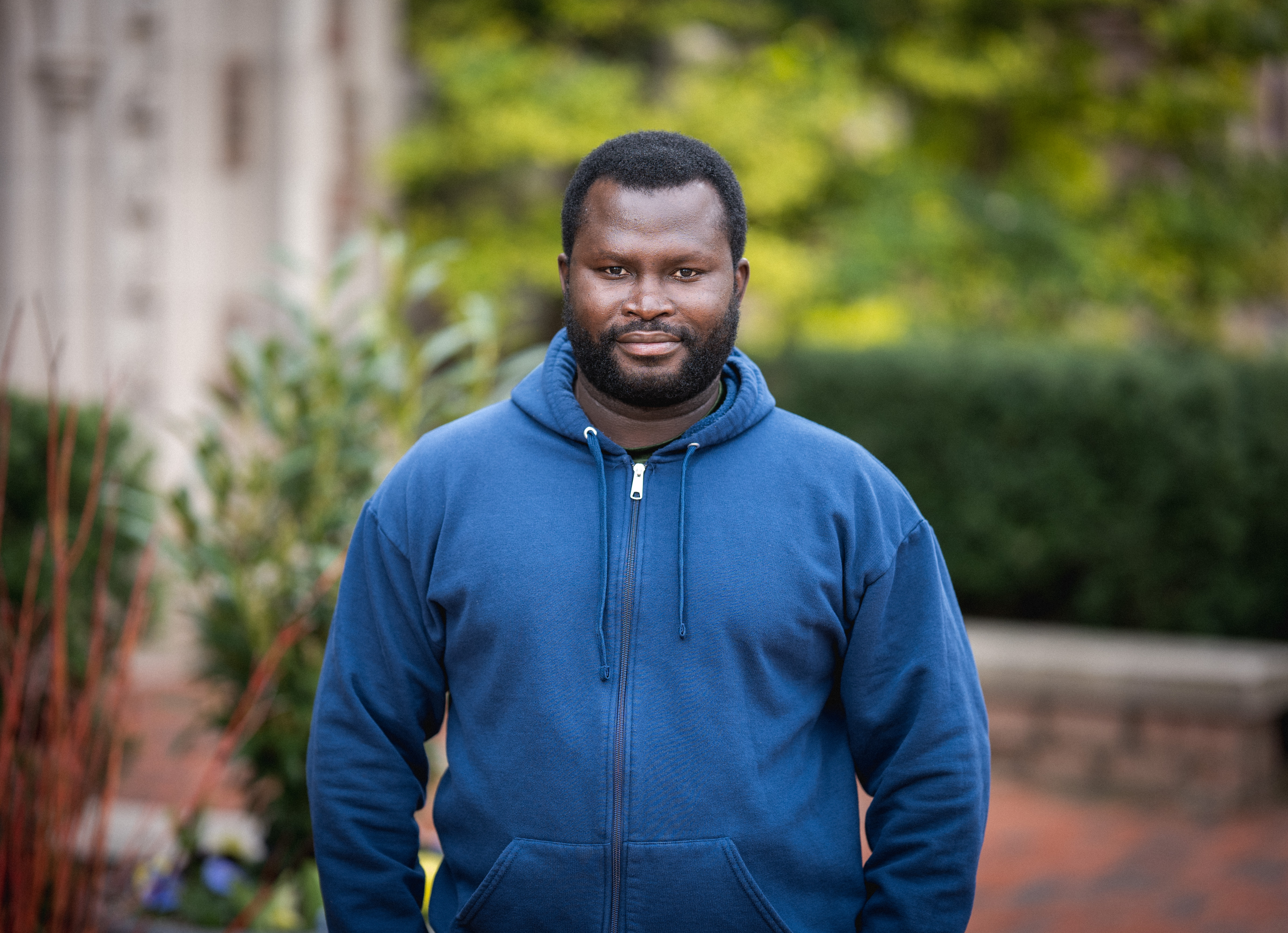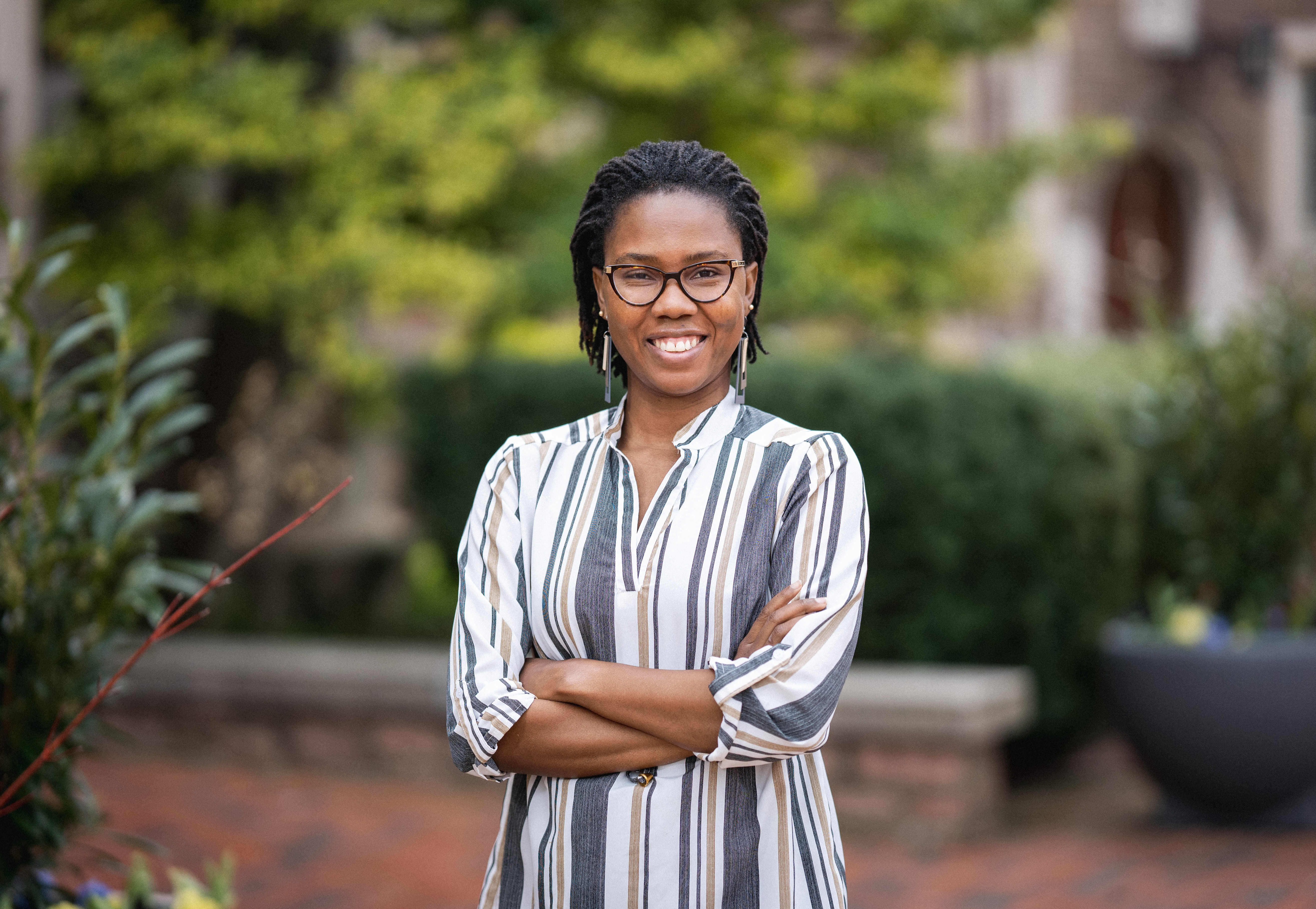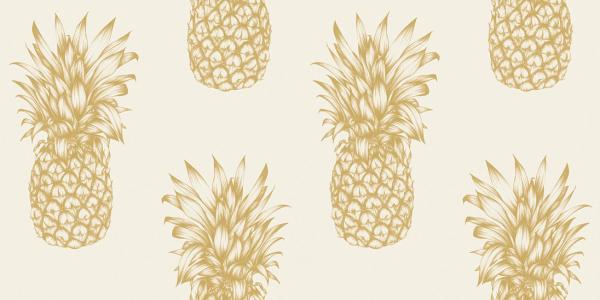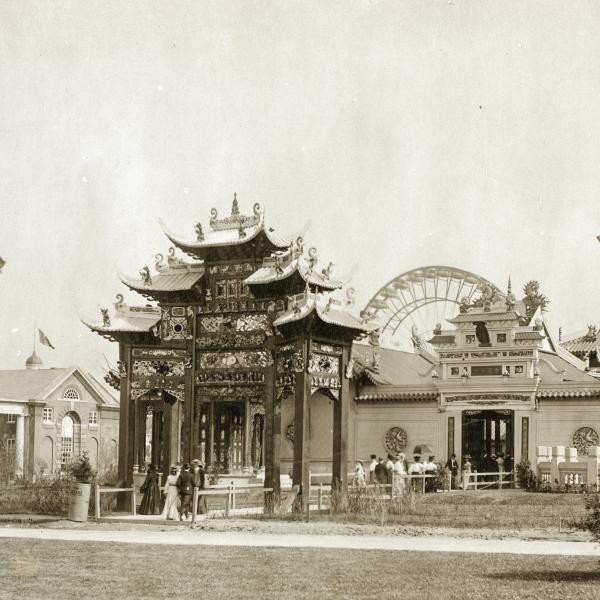Two scholars new to Washington University join the Center for the Humanities for the spring 2022 semester, thanks to a program that supports fellowships for early career humanities faculty from three leading African universities.
Austin Dziwornu Ablo and Mariama Zaami, both scholars from the University of Ghana, are taking up residence at the Center for the Humanities during the spring 2022 semester. They join with the support of the Building Capacity for Early Career Humanities Scholars in Africa (BECHS-Africa) Fellowship Program, funded by The Andrew W. Mellon Foundation. The residential fellowships allow for targeted mentorship and guidance for the selected scholars by identified senior scholars who share their research interests, while also providing an avenue for interaction and the sharing of research ideas and methodologies with peers. Participating institutions include University of Ghana, American University in Cairo (Egypt), Stellenbosch University (South Africa) and Washington University.
Linguist Dorothy Pokua Agyepong, also from the University of Ghana, was the first BECHS-Africa Fellow, in the spring of 2020. The program was paused for the COVID-19 pandemic during the 2020–21 academic year. (Washington University faculty in the humanities and humanistic social sciences are invited to review materials for the most recent competition, which will be updated when the next one is announced. In fall 2022, André Fischer, assistant professor in the Department of Germanic Languages and Literatures, will spend a semester at the University of Ghana.)
Ablo and Zaami join the community of fellows in residence at the Center for the Humanities in Umrath Hall, which includes Faculty Fellows, Graduate Student Fellows and Merle Kling Undergraduate Honors Fellows. Here, we ask them about their research interests, plans for their semester and what they’re looking forward to most during their fellowship.

Austin Dziwornu Ablo
Ablo is a senior lecturer at the Department of Geography and Resource Development at the University of Ghana. He earned a PhD in development geography from the University of Bergen (Norway) in 2016. His research interests revolve around urban studies, natural resource governance, entrepreneurship and development. With a disciplinary background in human geography, he draws upon relational perspectives, political ecology, political economy as well as organizational and institutional approaches to explore human-environment interactions at multiple scales. His research focuses on urban sprawl, land-use change, housing, private urbanism, natural resource governance and politics, climate change and environmental sustainability, entrepreneurship and employment, gender, and rural development.
I look forward to fully immersing myself in the multicultural intellectual environment of Washington University. I am looking forward to expanding my research network, meeting new people and developing new research ideas and collaborations. I also hope COVID-19 will not restrict mobility so that I can explore St. Louis. — Austin Dziwornu Ablo
Ablo is working on a Norwegian Research Council-funded project “Enclaving: Patterns of Global Futures in Three African Cities.” Focusing on the metropolitan cities of Accra, Maputo and Johannesburg, the project produces new and empirically supported knowledge on the globally relevant phenomenon of enclaving, including the way this a) impacts and shapes heterogeneous patterns of urban housing, b) relates to dynamics of inequality, and c) is integral to cultural orientations which are generative and transformative of the urban order. During his fellowship, Ablo will explore research funding opportunities, conduct a systematic literature review and draft and complete several articles based on his research.

Mariama Zaami
Zaami is a lecturer in the College of Humanities at the University of Ghana. She earned a PhD in sociology from the University of Calgary (Canada) in 2017. Her research focus is on race, ethnicity, equity, immigration and the intersections that exist to either include or exclude immigrants.
Zaami’s PhD research highlighted the dynamics of social inclusion and social exclusion that Ghanaian and Sudanese immigrant youth face in navigating social spaces in Calgary. Her findings indicated that the interplay of diverse intersecting factors — including ethnicity, race, gender and immigration status — collectively result in the social exclusion of her study populations. During her fellowship, she will develop two manuscripts from her PhD research: “Perceptions of Racial Profiling Among African Immigrant Youth in Calgary, Alberta” and “‘Feeling a Sense of Belonging’: Experiences of Social Inclusion Among African Immigrant Youth in Calgary.”
My temporary new home will be a learning environment that will broaden my understanding both theoretically and methodologically on debates concerning race and ethnicity. — Mariama Zaami
During her stay in St. Louis, Zaami welcomes recommendations for African restaurants, not only for their delicacies but also for the opportunity to establish networks with community members for future research. When it’s safe to do so, she would also enjoy attending a few concerts. “I am open to a lot of adventure,” she says.





